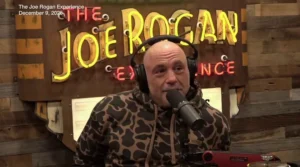Candace Cameron Bure and the Controversy Over Religious Conspiracy Theories

Candace Cameron Bure
Introduction
Candace Cameron Bure, an American actress, producer, and author, first gained widespread recognition for her role as D.J. Tanner on the beloved television series “Full House,” which originally aired from 1987 to 1995. The show, a hallmark of family-centered programming, showcased Bure’s talent at a young age, establishing her as a prominent figure in the entertainment industry. Following the series’ conclusion, she successfully transitioned into various roles in television and film, most notably in Hallmark Channel productions, where she has become one of the brand’s most recognized faces.
Bure’s public persona is often characterized by her strong Christian faith and family values, which resonate with a significant segment of her fan base. Over the years, she has utilized her platform to express her beliefs and advocate for causes close to her heart, reinforcing her image as a role model for many viewers. However, her recent engagement with religious conspiracy theories has sparked considerable discussion and controversy, prompting a reevaluation of her influence, especially among younger audiences who might look to her for guidance.
The intersection of celebrity culture and personal beliefs can be complex, particularly when a public figure’s expressions may unintentionally contribute to the spread of controversial ideologies. As Bure navigates this intricate landscape, the implications of her statements and affiliations raise important questions about responsibility and the impact of her celebrity status. Understanding the dynamics of her involvement with these theories is essential for comprehending the broader conversation surrounding the influence of public figures on societal perceptions of spirituality, faith, and conspiratorial narratives.
Who is Candace Cameron Bure?
Candace Cameron Bure is an American actress, producer, and author who gained prominence as a child star in the late 1980s and early 1990s. Born on April 6, 1976, in Panorama City, California, she is the youngest of four children in a family with a strong background in the entertainment industry. Candace’s acting career began at a young age when she was cast as D.J. Tanner on the popular television series “Full House,” which aired from 1987 to 1995. Her role on the show not only showcased her remarkable talent but also made her a beloved figure among audiences, marking the beginning of her rise to fame.
Following the conclusion of “Full House,” Candace pursued various projects that expanded her career within the entertainment realm. Moreover, she transitioned into producing and hosting, which further highlighted her diverse skill set. She has made numerous guest appearances on television shows and starred in several Hallmark Channel movies, reinforcing her position as a staple in family-friendly entertainment. Beyond her acting accomplishments, Candace has also written books, sharing insights about her personal life and faith.
Candace Cameron Bure’s faith plays a significant role in her life and has greatly influenced her career choices and public persona. Raised in a Christian household, she has been open about her beliefs and how they shape her decisions both personally and professionally. Her commitment to her faith has been evident in her choice of roles and the types of projects she supports. This alignment has attracted a specific audience and contributed to her reputation as a role model within the Christian community. As her career continues to evolve, Bure’s faith remains a foundational element that informs her journey in the entertainment industry.
Overview of the Religious Conspiracy Theories
Candace Cameron Bure, a prominent actress and television personality, has attracted attention for her involvement in various religious conspiracy theories that circulate within certain communities. These theories often stem from a blend of longstanding beliefs and the contemporary dynamics of social media, which allow these narratives to spread rapidly. Primarily, these conspiracy theories can be categorized into two main types: those that pertain to religious or spiritual eschatology and those that challenge established scientific consensus in favor of a worldview that aligns with particular faith doctrines.
One of the more notable religious conspiracy theories is the notion that mainstream media and educational institutions are engaged in systematic efforts to undermine biblical truths. Proponents argue that narratives pushed by these entities are deliberately misleading, with the objective of eroding religious faith. This aligns with a broader suspicion that many individuals harbor toward secular institutions, reflecting a fear of misinformation that could threaten core beliefs. Bure has been associated with these views, suggesting that she advocates for a return to a more scripture-centric understanding of civilization’s moral framework.
Additionally, there are conspiracy theories that posit that significant global events and policies are influenced by clandestine groups. These beliefs often suggest that such entities are motivated by an agenda that contradicts Christian values, proposing that spiritual warfare is inherently at play in everyday life. Followers of these theories perceive their actions as a battle against forces perceived as evil. Bure’s commentary on matters related to faith may inadvertently encourage such beliefs, as it resonates with followers who are drawn to the idea of uncovering hidden truths behind everyday occurrences.
In conclusion, Candace Cameron Bure’s engagement with certain religious conspiracy theories highlights the intersection of faith and the broader conspiratorial mindset that prevails in some communities. Understanding these narratives requires a nuanced approach, examining their origins and implications within the context of contemporary society.
The Reaction from Fans and Critics
The unveiling of Candace Cameron Bure’s views on religious conspiracy theories has sparked a notable division among her followers and detractors. Supporters of Bure, comprising a significant segment of her fanbase, have rallied around her statements, interpreting them as a courageous stance in the face of societal skepticism. Many fans appreciate her forthrightness, seeing her as someone unafraid to express beliefs that resonate with their own perspectives on faith and spirituality. These admirers often express their support through social media platforms, where they argue that Bure’s willingness to discuss such contentious topics is commendable in a climate where religious discourse can be stifled or stigmatized.
Conversely, critics have voiced their condemnation of Bure’s endorsement of these theories, labeling them as dangerous and potentially misleading. Many skeptics, including media commentators and religious scholars, argue that promoting conspiracy theories undermines the credibility of genuine faith-based discussions. The backlash is intensified by concerns that such views could further polarize an already divided society, fostering an environment where misinformation thrives. Critics have taken to various outlets to articulate their unease, suggesting that celebrities have a responsibility to disseminate information that is both truthful and anchored in fact, rather than conjecture.
This polarization illustrates a broader societal trend wherein influential figures are scrutinized for their public statements and beliefs. The intersection of celebrity culture and religious faith prompts ongoing debates about accountability, communal responsibility, and the societal impacts of shared beliefs. As Bure’s views continue to circulate in public discourse, the reactions from both supporters and critics contribute to a complex narrative that reflects larger ideological divides within society. The ongoing discussion serves as a reminder of the passionate engagement that religious and conspiracy-related topics can evoke among diverse audiences.
Implications for Her Career and Public Image
The actions and statements made by Candace Cameron Bure regarding religious conspiracy theories undoubtedly hold significant implications for both her acting career and public image. As a prominent figure in the entertainment industry, her alignment with controversial ideas can influence not only her personal brand but also her relationships within Hollywood. Industry professionals and audiences alike are increasingly sensitive to issues related to perceived divisiveness or extremism, and this has led to heightened scrutiny of public figures who express unconventional beliefs.
One immediate consequence could be the impact on Bure’s future projects. The film and television sectors thrive on public perception, and any allegations of controversial political or religious affiliations might deter producers and studios from collaborating with her. In recent years, there has been a push within the industry for inclusive and socially responsible programming. Given that many networks and production companies award priority to diversity and inclusivity, Bure’s status as a leading actress may be jeopardized if her stances are perceived as alienating to broader audiences.
Moreover, the audience’s response plays a critical role in shaping her public image. While there may be segments of her fanbase that resonate with her beliefs, there are also considerable risks of alienating those who may hold opposing views. As public opinion continues to shift, aligning with controversial ideas may restrict her appeal to a wider audience, potentially resulting in diminished box office success for her projects. Therefore, it is essential for Bure to navigate this complex landscape thoughtfully, as the ramifications of her public statements may linger in the industry for years to come.
The Role of Celebrity in Promoting Conspiracy Theories
In today’s media landscape, celebrities wield significant influence over public perception, with their words and actions often resonating with large audiences. This phenomenon becomes particularly concerning when public figures promote conspiracy theories, as seen in the case of Candace Cameron Bure. The role of celebrity in disseminating controversial ideas is a complex issue that intertwines fame with responsibility.
Celebrities have long been viewed as trendsetters, and their endorsements can elevate fringe beliefs to mainstream discussions. When influential personalities share unverified claims or conspiracy theories, it can unintentionally validate those narratives. For instance, their immense reach on social media platforms makes it easy for misleading information to spread virally, cultivating a culture of skepticism towards factual information. This can have far-reaching implications, particularly when it intersects with political or social issues that affect public health and safety.
The responsibility that comes with such platforms is immense. Celebrities, such as Bure, have a duty to approach sensitive topics with caution and to fact-check their statements before sharing. By failing to do so, they risk misleading their followers and contributing to the proliferation of harmful ideologies. This not only reflects poorly on the individual but can also reinforce social divides and mistrust in authoritative sources.
Moreover, it is essential to recognize that the impact of a celebrity’s statement extends beyond their immediate audience. Their influence ripples through society, shaping opinions and potentially inciting behaviors aligned with those beliefs. Thus, individuals in the public eye must be aware of their unique position and strive to improve the quality of discourse. Ultimately, as the case of Bure illustrates, the responsibility of celebrities in combating misinformation is paramount in today’s society, where the lines between truth and conspiracy can become alarmingly blurred.
Faith and Conspiracy Theories: A Complex Relationship
The intersection of faith and conspiracy theories presents a nuanced and often contentious dynamic. Individuals with strong religious beliefs may sometimes find themselves drawn to conspiratorial thinking, which can stem from a variety of psychological, social, and cultural factors. This relationship is complex and multifaceted, reflecting the broader human struggle to make sense of the world in light of uncertainty and fear.
One significant reason why faith can sometimes align with conspiracy theories is the inherent desire for coherence and meaning among individuals facing chaotic circumstances. Many religious doctrines offer a framework for understanding the world, providing narratives that can help believers navigate distressing events. When these stories do not align with observable reality, individuals may resort to conspiracy theories as alternative explanations that seem to fit within their established belief systems.
Moreover, the community aspect of religious groups plays a crucial role in this dynamic. In many cases, individuals within tightly-knit religious communities may reinforce shared beliefs, including conspiratorial ideas. Through socialization and collective discussions, certain narratives gain traction, leading to a ripple effect where conspiracy theories are legitimized within the group. This phenomenon can create echo chambers, minimizing exposure to contrary views and fostering an acceptance of unfounded claims among the members.
Furthermore, societal factors such as distrust in institutions and governments can propel some individuals toward conspiracy theories, particularly within religious contexts. Disillusionment with authority figures or mainstream narratives can cause individuals to seek validation for their concerns from alternative sources, often accentuated by their faith. It is important to understand that this behavior does not necessarily stem from a lack of intelligence or critical thinking ability, but rather a deeply rooted need for belonging and certainty. As such, the interplay between faith and conspiracy theories illustrates a broader psychological response to a complex world, reflecting humanity’s quest for assurance amid uncertainty.
Historical Context of Religious Conspiracy Theories
Religious conspiracy theories have a long and complex history, often emerging from the intersection of faith, fear, and societal upheaval. These theories frequently reflect the anxieties of their time, utilizing the framework of religion to make sense of the uncertainties faced by believers. One of the earliest examples can be traced back to the early Christian era when accusations were levied against Christians, portraying them as subversive figures who conspired against the Roman Empire. Such notions were fueled by the fear of the unknown and the desire to maintain societal order, leading to widespread persecution.
As history progressed, the Protestant Reformation catalyzed a host of conspiracy theories, wherein Catholics and Protestants accused each other of engaging in secretive plots that would undermine their respective faiths. The mistrust inherent within these religious conflicts fostered an environment ripe for the development of conspiracy narratives. Notably, the infamous blood libel against Jews marked another significant point in history, portraying the Jewish community as conspirators engaged in the ritualistic murder of Christian children. This accusation perpetuated long-lasting stereotypes and fueled anti-Semitic sentiments across Europe.
The evolution of conspiracy theories continued into the modern era, notably during the 20th century when the rise of globalism prompted new interpretations of age-old narratives. The tension between secular and religious beliefs became a fertile ground for conspiracy theories, as individuals grappled with the rapid changes within society. The proliferation of the internet has further exacerbated these theories, enabling the rapid spread of information – and misinformation – across various platforms. This environment allows for seemingly legitimate discussions to morph into conspiracy-driven narratives, often entwining genuine beliefs with unfounded suspicions, as seen in contemporary figures like Candace Cameron Bure who engage with such theories.
Conclusion and Future Considerations
In reviewing the controversy surrounding Candace Cameron Bure and her association with various religious conspiracy theories, it is evident that this situation brings to light the complexities of celebrity influence in modern society. Bure, known for her roles in family-centric programming and her outspoken Christian faith, has recently made statements that have sparked considerable debate. Her comments, interpreted by some as endorsing certain conspiracy theories, highlight the potential consequences of public figures discussing such sensitive topics.
The implications of her statements extend beyond just Bure herself; they also reflect on the societal effects of celebrity endorsements of conspiracy theories. As followers look to public figures for guidance, the potential for misinformation increases, potentially leading to a wider acceptance of divisive beliefs. This raises critical questions about the responsibility that comes with celebrity status and the need for discernment among audiences when considering the ideas propagated by well-known personalities.
Looking towards the future, it remains uncertain how this controversy will affect Bure’s career trajectory. As public sentiment shifts and the discussions surrounding religious beliefs evolve, Bure’s approach to her faith and public persona may need recalibration. The ongoing dialogue about faith in modern culture suggests that the intersection of celebrity and personal belief will continue to be a topic of exploration. Observers will undoubtedly monitor how Bure navigates this challenging landscape, as well as how her fans and the general public respond to her positions going forward. Overall, the ongoing conversation surrounding faith, belief, and the influence of celebrity on societal norms will likely remain at the forefront as we consider the lasting effects of this notable controversy.










Leave a Reply
You must be logged in to post a comment.